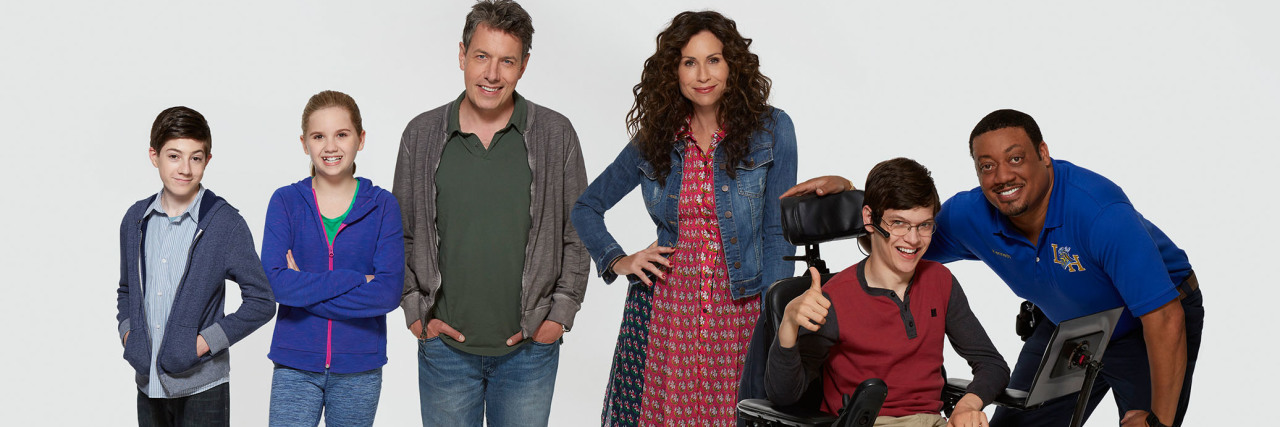I am 10 years old. “Walk in a straight line, just how you normally walk,” says the physical therapist. In a subtle act of resistance, I attempt to make my slightly stiff gait smoother than usual, devoting my concentration to each step I take. “Let’s try that again,” she says, gently. “Heel, toe, heel, toe, heel, toe…” I feel self-conscious as the physical therapist picks up her clipboard and scribbles down some notes. I am reduced to my gait, described by medical jargon, inadvertently dehumanized. I leave the session fixated on my gait — on how abnormal it seems, on how its abnormality seems to be everyone else’s focus, on how it will never be “good enough.” I develop a pervasive paranoia that others will reduce me to my gait patterns. It lasts for years.
I am 21 years old. “Just walk how you normally walk.”
“This is how I walk.”
“Oh, no… this is all wrong… You pronate. You have a petite gait with a 20-degree kickout… Is this your long-term walking plan?”
A smile spreads across my face. I laugh at the absurdity of the measurements, jargon, gait corrections and long-term movement goals This could easily be a scene from my life. But it’s not. It’s a scene from ABC’s new comedy, “Speechless.”
“Speechless” centers around a nonverbal teenage boy with cerebral palsy, JJ DiMeo, and his family. In this particular scene, JJ’s able-bodied younger brother, Ray, is forced to participate in physical therapy in JJ’s place, after JJ convinces his new, highly gullible aide that he “always miss[es]” physical therapy sessions. When the therapist insists on leaving the house and being compensated for her time in JJ’s absence, Maya DiMeo, JJ and Ray’s strong-willed mother, sends a bewildered, unamused Ray outside to take JJ’s place, with the firm declaration “We pay for physical therapy, we get physical therapy.”
Thus, Ray finds himself subject to the same gait criticisms and jargon ambulatory people with cerebral palsy regularly face in physical therapy. Ray’s confusion and disdain for the process amplifies as he attempts to follow the physical therapist’s instructions, which ironically makes his gait more pronounced. Later in the episode, the physical therapist’s words echo inside his mind (including criticism she never actually provided), and he feels too self-conscious to walk in front of his crush. “Why did you make me walk?” he shouts, rhetorically.
I too have felt the resonant, unceasing echo of gait correction — despite the fact that my gait is a virtually unalterable aspect of my appearance. Hearing the ways in which I can improve my gait has, on numerous occasions, left me trapped in my own mind, wondering about whether or not the world notices that I walk slightly differently than is perceived as “typical.” However, I have regularly heard my self-consciousness dismissed as invalid, waved away by those who insist that “No one cares how you walk” and “The world does not revolve around you; get over it!”
For years, the contempt I heard towards my constant, gait-related worries was mirrored by the fact that I had never seen the self-consciousness I felt about my movement patterns portrayed in the media. Disability — and by extension, the psychological ramifications of living with it — is rarely addressed on television — relegated to off-screen innuendos and audience assumptions.
For the first 21 years of my life, I had never heard the words “cerebral palsy” uttered on a primetime television show, and I had certainly never viewed a portrayal of the often-detrimental consequences of being implicitly molded into appearing less conspicuous, more socially acceptable, and above all else, more able-bodied. The overwhelming lack of disability representation on television is rife with a deleterious implication — that the experiences and stories of people with disabilities are invalid, unworthy of further discussion, and — as reflected by the reactions to my self-consciousness concerning my gait — completely dismissible.
Therefore, the moment I first watched my experiences as a person with cerebral palsy reflected back at me through the media was a powerful validation. Seeing an able-bodied character experience and begin to comprehend the struggles of my everyday life provoked a giddy happiness in me as I realized for the first time that my feelings towards my gait are wholly acceptable — and my experiences with disability are valid. My experiences matter enough to be revealed to able-bodied audiences. My experiences merit discussion. My experiences are shared by many; I am not alone in my feelings of self-consciousness towards my gait patterns.
In a single moment, as I watched Ray DiMeo feel desperate to appease a demanding physical therapist, as I watched him struggle to swing alternate arms as he walked, as I heard the echos of the therapist’s words rattle in his mind, I saw and heard myself. A powerful message struck me deeply, resonating forcefully, with great clarity.
Your story is valuable.
Your feelings are valid.
You matter.
We want to hear your story. Become a Mighty contributor here.

